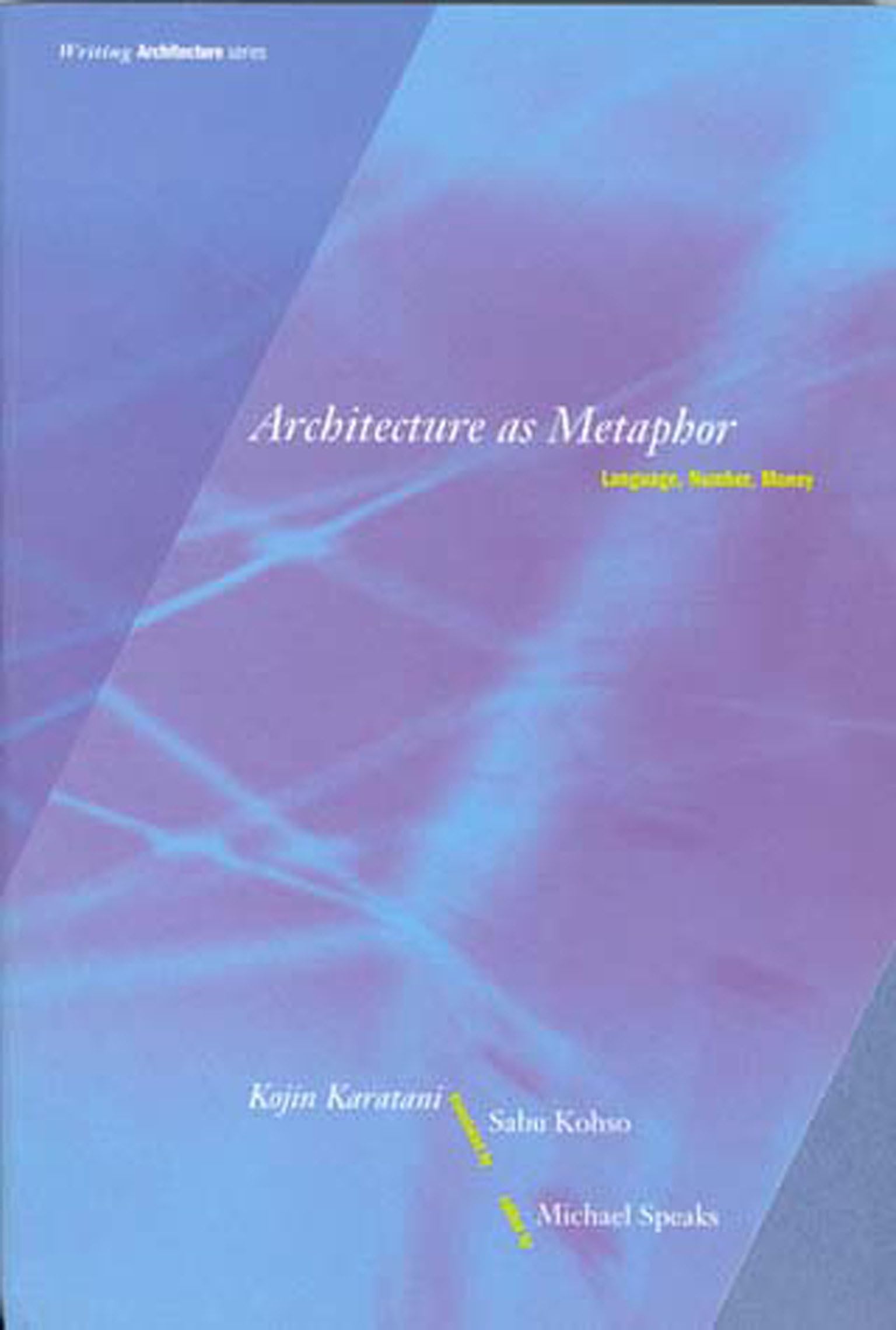
Title

Architecture As Metaphor: Language, Number, Money (Writing Architecture)-used
Processing time: 1-3 days
US Orders Ships in: 3-5 days
International Orders Ships in: 8-12 days
Return Policy: 15-days return on defective items
In Architecture As Metaphor, Kojin Karatani Detects A Recurrent 'Will To Architecture' That He Argues Is The Foundation Of All Western Thinking, Traversing Architecture, Philosophy, Literature, Linguistics, City Planning, Anthropology, Political Economics, Psychoanalysis, And Mathematics.Kojin Karatani, Japan'S Leading Literary Critic, Is Perhaps Best Known For His Imaginative Readings Of Shakespeare, Soseki, Marx, Wittgenstein, And Most Recently Kant. His Works, Of Which Origins Of Modern Japanese Literature Is The Only One Previously Translated Into English, Are The Generic Equivalent To What In America Is Called 'Theory.' Karatani'S Writings Are Important Not Only For The Insights They Offer On The Various Topics Under Discussion, But Also As An Example Of A Distinctly Nonwestern Critical Intervention. In Architecture As Metaphor, Karatani Detects A Recurrent 'Will To Architecture' That He Argues Is The Foundation Of All Western Thinking, Traversing Architecture, Philosophy, Literature, Linguistics, City Planning, Anthropology, Political Economics, Psychoanalysis, And Mathematics. In The Three Parts Of The Book, He Analyzes The Complex Bonds Between Construction And Deconstruction, Thereby Pointing To An Alternative Model Of 'Secular Criticism,' But In The Domain Of Philosophy Rather Than Literary Or Cultural Criticism. As Karatani Claims In His Introduction, Because The Will To Architecture Is Practically Nonoexistent In Japan, He Must First Assume A Dual Role: One That Affirms The Architectonic (By Scrutinizing The Suppressed Function Of Form) And One That Pushes Formalism To Its Collapse (By Invoking Kurt Godel'S Incompleteness Theorem). His Subsequent Discussions Trace A Path Through The Work Of Christopher Alexander, Jane Jacobs, Gilles Deleuze, And Others. Finally, Amidst The Drive That Motivates All Formalization, He Confronts An Unbridgeable Gap, An Uncontrollable Event Encountered In The Exchange With The Other; Thus His Speculation Turns Toward Global Capital Movement. While In The Present Volume He Mainly Analyzes Familiar Western Texts, It Is Precisely For This Reason That His Voice Discloses A Distance That Will Add A New Dimension To Our Englishlanguage Discourse.
⚠️ WARNING (California Proposition 65):
This product may contain chemicals known to the State of California to cause cancer, birth defects, or other reproductive harm.
For more information, please visit www.P65Warnings.ca.gov.
- Q: What is the main theme of 'Architecture as Metaphor'? A: The main theme of 'Architecture as Metaphor' is the exploration of the 'will to architecture' as a foundational concept in Western thinking, linking various disciplines such as philosophy, literature, and political economics.
- Q: Who is the author of 'Architecture as Metaphor'? A: The author of 'Architecture as Metaphor' is Kojin Karatani, a prominent Japanese literary critic known for his innovative interpretations of Western texts.
- Q: What can readers expect from the writing style of Kojin Karatani? A: Readers can expect an analytical and thought-provoking writing style, as Karatani engages deeply with Western philosophical texts while offering a unique non-Western perspective.
- Q: How many pages are in 'Architecture as Metaphor'? A: The book 'Architecture as Metaphor' contains 246 pages.
- Q: What is the binding type of this book? A: The binding type of 'Architecture as Metaphor' is paperback.
- Q: When was 'Architecture as Metaphor' published? A: The book 'Architecture as Metaphor' was published on October 5, 1995.
- Q: Is 'Architecture as Metaphor' suitable for someone new to philosophy? A: Yes, while 'Architecture as Metaphor' delves into complex ideas, it is written in a way that can be accessible to readers who are new to philosophy, provided they have an interest in architecture and critical theory.
- Q: What disciplines does 'Architecture as Metaphor' connect? A: The book connects various disciplines including architecture, philosophy, literature, linguistics, anthropology, political economics, psychoanalysis, and mathematics.
- Q: Does the book address modern architectural theories? A: Yes, 'Architecture as Metaphor' addresses modern architectural theories, particularly through its analysis of construction and deconstruction concepts.
- Q: Are there any notable figures discussed in 'Architecture as Metaphor'? A: Yes, notable figures discussed in the book include Christopher Alexander, Jane Jacobs, and Gilles Deleuze, among others.

